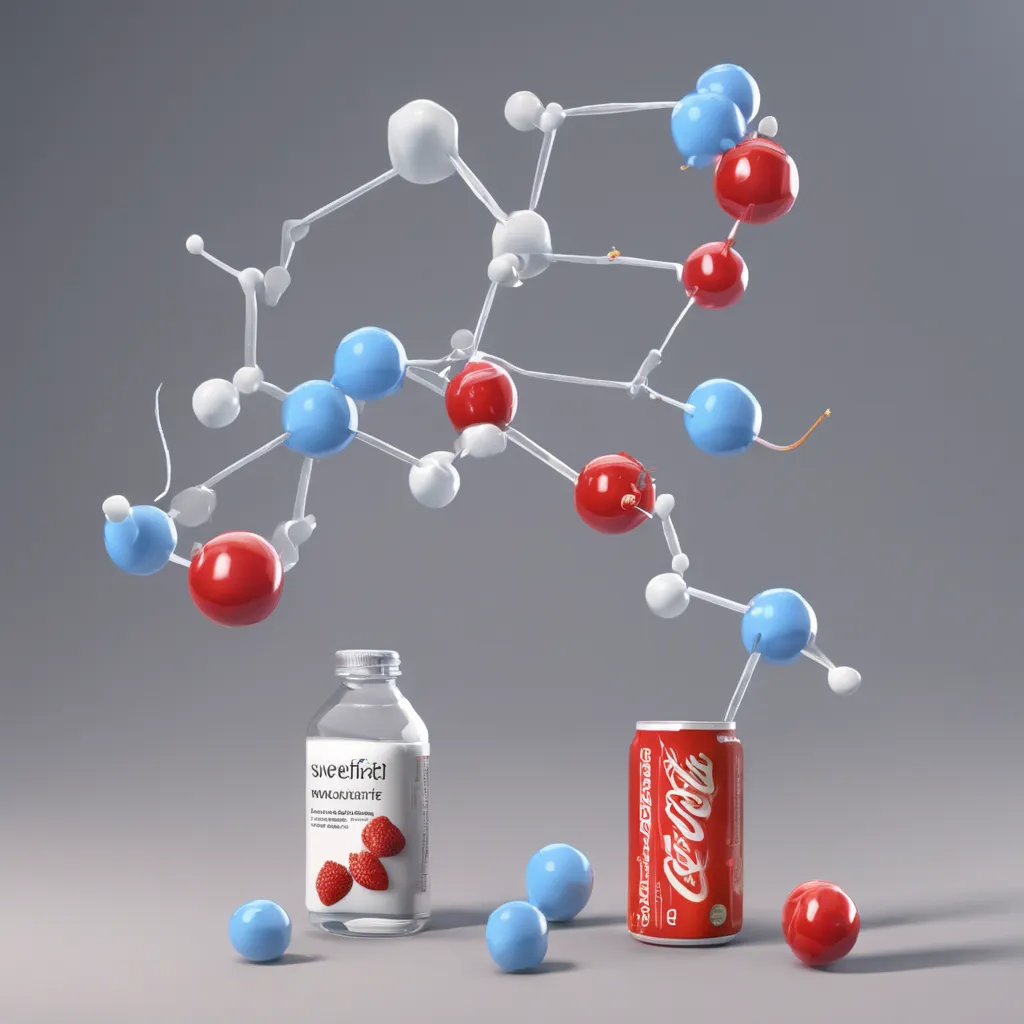The Science of Artificial Sweeteners and Blood Sugar
Curious about the effects of artificial sweeteners on your blood sugar? Dive into the intriguing world of scientific research to uncover the truth behind these widely used sugar substitutes.
Curious about the effects of artificial sweeteners on your blood sugar? Dive into the intriguing world of scientific research to uncover the truth behind these widely used sugar substitutes.

Artificial sweeteners have become a popular alternative to sugar in recent years, especially for those looking to control their blood sugar levels. But what does science say about the relationship between artificial sweeteners and blood sugar? In this article, we will delve into the research behind artificial sweeteners, their impact on blood sugar, and whether they are a safe option for those with diabetes or prediabetes.
Artificial sweeteners are sugar substitutes that are used to provide sweetness to food and beverages without the added calories. They are chemically synthesized compounds that are many times sweeter than sugar, so only a small amount is needed to achieve the desired level of sweetness. Artificial sweeteners are commonly used in low-calorie or sugar-free products, such as diet sodas, yogurts, and desserts. They provide a sweet taste without contributing to weight gain or increasing blood sugar levels, making them popular among those looking to reduce their sugar intake.
Scientific research has shown that artificial sweeteners have minimal impact on blood sugar levels. They are metabolized differently than sugar and do not cause a significant increase in blood glucose levels.
Did you know that artificial sweeteners, despite their popularity, have sparked numerous controversies? These controversies have raised concerns about the long-term effects and safety of consuming artificial sweeteners. Let's explore the various points of contention:
One of the biggest controversies surrounding artificial sweeteners is the potential health risks they may pose. There have been claims that these sweeteners can lead to various adverse effects, including an increased risk of cancer, metabolic disorders, and weight gain. However, these claims are still largely inconclusive and require more research for definitive conclusions.
Another source of controversy is the conflicting research surrounding artificial sweeteners. Some studies suggest that they can help with weight management and diabetes control, while others indicate potential negative effects. The contradictory findings make it challenging to reach a consensus on the overall impact of artificial sweeteners on health.
Critics argue that the use of artificial sweeteners may have psychological implications. By providing the sensation of sweetness without the associated calories, some believe it can lead to overconsumption of other unhealthy foods or a distorted perception of sweetness. This aspect has raised concerns about the impact on eating behaviors and long-term dietary habits.
The lack of consistent regulatory oversight is another contentious point. Different countries have different regulations and safety standards for artificial sweeteners. This variability has fueled debates about whether these sweeteners are adequately tested and monitored for potential side effects or harmful consequences.
Emerging research also suggests that artificial sweeteners might affect the composition and function of the gut microbiome. As the gut microbiome plays a crucial role in overall health, any potential disturbances raise concerns about the long-term impact on digestion, metabolism, and immune function.
Are you eager to discover the art of using artificial sweeteners? Look no further! Here are some practical tips to help you master the art and make the most of your sweeteners:
In conclusion, the science behind artificial sweeteners and their impact on blood sugar levels is complex. While these zero-calorie substitutes are generally deemed safe for consumption, some studies suggest they may still have a mild effect on blood sugar levels. However, more research is needed to determine the extent of this impact and whether it is significant enough to affect overall glucose control. It is important for individuals with diabetes or other blood sugar-related conditions to monitor their consumption and consult with healthcare professionals to make informed decisions about artificial sweeteners.
Artificial sweeteners are substances that are used as sugar substitutes. They are typically much sweeter than regular sugar, so only a small amount is needed to achieve the desired sweetness.
Yes, artificial sweeteners are considered safe for consumption by regulatory agencies such as the U.S. Food and Drug Administration (FDA) when consumed in moderation. However, some people may experience digestive issues or other side effects from consuming certain artificial sweeteners.
Artificial sweeteners do not significantly raise blood sugar levels because they are not carbohydrates and do not have a significant impact on insulin levels. They can be a good option for people with diabetes or those looking to reduce their sugar intake.
Artificial sweeteners can be beneficial for people who need to limit their sugar intake, such as those with diabetes or individuals trying to lose weight. By providing sweetness without the calories of sugar, artificial sweeteners can help reduce overall calorie intake and promote weight management.
Some studies suggest that artificial sweeteners may increase cravings for sugary foods and beverages. This is because the intense sweetness of artificial sweeteners can trigger the brain's reward system, leading to a desire for more sweet foods. However, more research is needed to fully understand this effect.
Yes, there are several natural alternatives to artificial sweeteners, such as stevia, monk fruit extract, and erythritol. These sweeteners are derived from plants and may be a suitable option for those looking to avoid artificial ingredients.
Yes, artificial sweeteners can be used in baking and cooking as substitutes for sugar. However, it's important to note that artificial sweeteners may not have the same properties as sugar when it comes to texture and browning, so recipes may need to be adjusted accordingly.
Most artificial sweeteners have little to no calories, which makes them popular options for those trying to lose weight or control their calorie intake. However, it's important to check the specific product labels, as some artificial sweeteners may contain a small amount of calories.